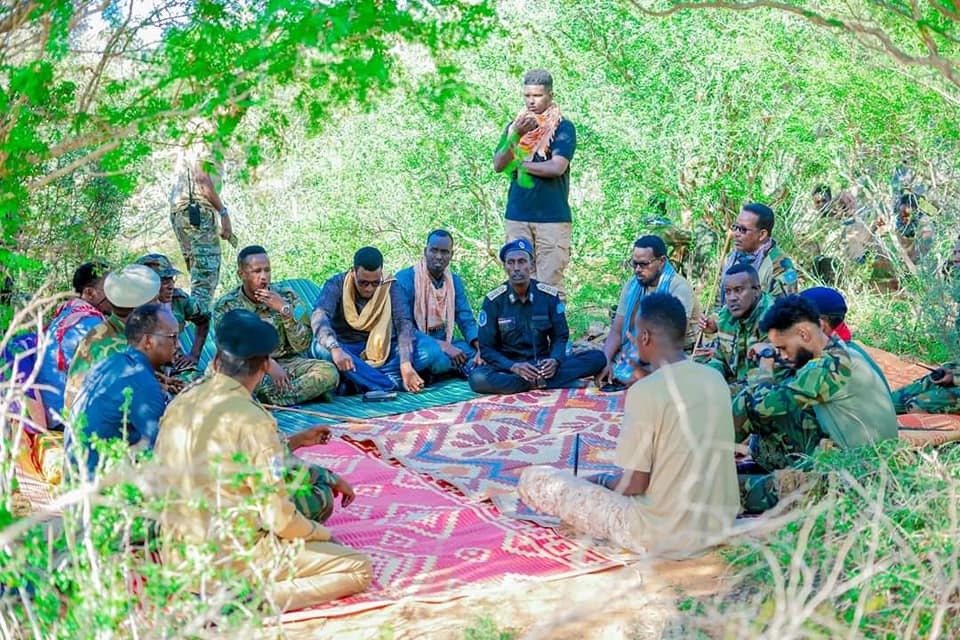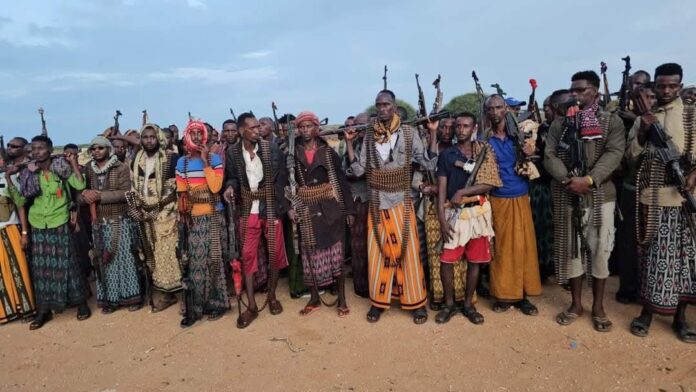JOWHAR (Kaab TV) – At least 20 people, including women and children, have been killed in fierce clashes between rival clans in Somalia’s Middle Shabelle and Hiiraan regions.
The violence, driven by recently supplied Egyptian weapons, pits two heavily armed militias against each other in a bloody and escalating conflict.
The fighting erupted last Friday when Hawadle militia forcibly entered Xalfooley village, located on the border between Middle Shabelle and Hiiraan.
Local authorities and eyewitnesses reported that the conflict quickly spread to nearby rural areas, including Ceeldheere Buraale village, displacing hundreds of nomadic families.
Efforts by Somali government officials to intervene have failed.
Abdullahi Haji Qurow, commander of the 27th division of Somali government forces, and Hiiraan Governor Muse Salad visited the conflict zone to mediate, but their peace initiatives were rejected outright by the militias.

“We are unable to do anything to stop this deadly war,” Commander Qurow admitted, reflecting the grim reality on the ground.
Distrust among the warring parties further complicates resolution efforts.
The Abgaal militia accuses Governor Muse Salad—a former commander of the Hawadle militia—of bias, making negotiations nearly impossible.
Additionally, suspicions have arisen that Commander Qurow might be sabotaging the situation, heightening tensions.
A local elder, Mohamed Osman, has accused the Somali Federal Government of exacerbating the conflict by supplying weapons to fuel political motivations.
Osman alleged that President Hassan Sheikh Mohamud is arming militias aligned with him to destabilize the region ahead of the overdue Hirshabelle elections.
“Hassan Sheikh is using these weapons to ensure his loyalists gain control of Hirshabelle’s leadership,” Osman said.
These allegations have found support among some Hirshabelle authorities, who believe the president is orchestrating distrust in the region to delay the elections and extend the term of the Jowhar-based administration—an idea strongly opposed by local opposition groups.
Adding to the complexity is the delivery of a significant consignment of military equipment from Egypt to Somalia.
Since September, Mogadishu has received shipments of anti-aircraft guns and artillery from Cairo.
This development comes amidst strained relations between Somalia and Ethiopia over Somaliland-Ethiopia agreements concerning the Red Sea, with Egypt exploiting the rift to strengthen its influence in Somalia.
Security experts warn that if these weapons continue to flow into the hands of rival clans, Somalia risks plunging into another catastrophic conflict reminiscent of the 1990s.
During that period, heavily armed clan factions fought for control of towns and cities, including Mogadishu, resulting in one of the worst humanitarian crises in the country’s history.


